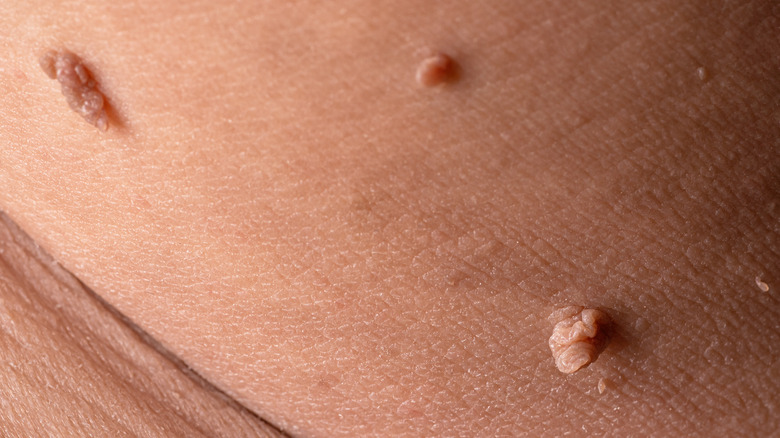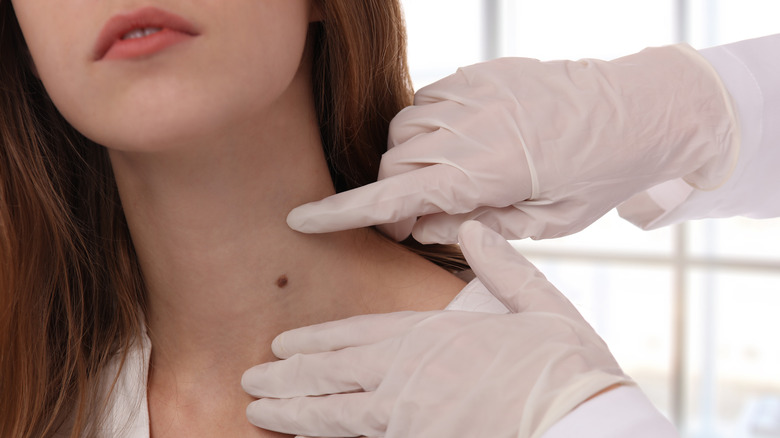Does Toothpaste Really Work To Remove Skin Tags?
Skin tags are small fleshy lumps of skin that commonly grow on the neck, under the armpits, and on the groin area. While they look similar to warts and other skin, they are not a cause for concern medically. According to the U.K.'s National Health Service (NHS), skin tags are made up of harmless collagen fibers surrounding small blood vessels and tend to occur more often in people with obesity and type 2 diabetes.
But some people with skin tags feel self-conscious or don't like the way they snag on jewelry or clothing, so they search out ways to remove them quickly and easily. One of the most common folk treatments for skin tags is to apply common toothpaste to them until they dry up and fall off. But does it really work? And more importantly: is that a safe treatment? Experts say you should exercise caution before you try this unproven method yourself.
How does toothpaste stand up for skin tag removal?
According to the American Academy of Dermatologists (AAD), you should seek out professional help from a doctor or dermatologist if you wish to remove a skin tag or other skin growths like moles. Dermatologists warn against trying any surgical procedure at home because something can go wrong unexpectedly. And when it comes to using toothpaste to remove skin tags, there just isn't any scientific evidence that this method is safe or effective (per VeryWell Health).
When you allow a medical professional to remove a skin tag for you, there is almost no risk of complications, because the same freezing or precise burning procedure used on skin warts is applied, according to NHS. If a skin tag is especially difficult to remove, your physician may perform minor surgery using medical instruments that remove it cleanly and with no chance of infection. You might be tempted to try an at-home procedure called ligation, which involves tying a piece of thread around the base of the skin tag to cut off its blood flow until it dies and falls off on its own (via NHS). But according to AAD, any homemade "surgeries" can lead to deep-seated infections or wounds where enough blood is lost that you may need to go to the emergency room.


